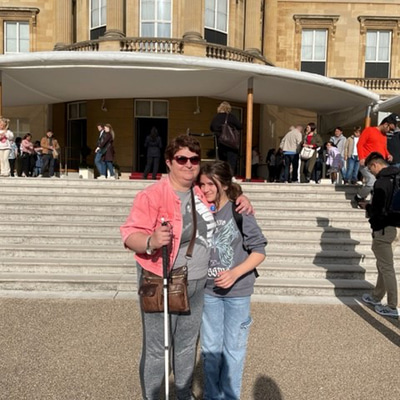RNIB calls for investment in vision rehabilitation services
“It is simply inexcusable that people are missing out on the support they need, based on where they live,” Vivienne Francis, RNIB’s chief social change officer, said

27 September 2023
The Royal National Institute of Blind People (RNIB) is calling for immediate action to invest in and modernise vision rehabilitation services, with its research suggesting more than 115,000 blind and partially sighted people could be without support after receiving a diagnosis of sight loss.
Vision rehabilitation sessions must be provided by local authorities, and people who are registered blind or partially sighted should be offered an assessment within 28 days.
However, RNIB suggests that gaps and inconsistencies in provision, and an under-resourced system, have created a “postcode lottery of care” across the country.
Vision rehabilitation is the only social service not monitored by care regulators, the charity said.
RNIB found that 56% of blind and partially sighted people it surveyed had received vision rehabilitation support.
More than one third had not, with the remainder saying they were awaiting support, and a small number choosing to decline the offer.
One third
of blind and partially sighted people surveyed had not received vision rehabilitation support, the RNIB found
The charity suggested that, if this figure is representative of the UK adult population who are registered blind or partially sighted, it could mean that 115,000 people have not received the support to which they are entitled.
RNIB is calling for action to ensure blind and partially sighted people are made aware of services they are entitled to.
The charity is also encouraging local authority pathways to take greater consideration of the emotional effect of a sight loss diagnosis, so that anyone who initially turns down an offer of support can be followed up and supported over time.
Vivienne Francis, chief social change officer for RNIB, said: “When delivered well, vision rehabilitation can be a life-changing first step to rebuild confidence, offer emotional support and practical skills.”
Francis explained: “RNIB receives tens of thousands of calls a year from people struggling with diagnosis. We see people quitting their jobs unnecessarily, afraid to go out and about, losing their relationships; our counselling service is oversubscribed.
“It is simply inexcusable that people are missing out on the support they need, based on where they live, because their right to receive it is loosely upheld or they are unaware of the statutory support they’re entitled to. Even more worryingly, even when pushing for support, they are just not receiving it,” she added.
Sight loss diagnosis
Around 43% of those asked described themselves as confidently able to move around outdoors, and 28% felt they could travel independently after the support they had received, while 25% felt they could independently complete daily living tasks.
The survey found that half of those asked did not feel vision rehabilitation sufficiently addressed the emotional and psychological effects of sight loss.
Francis shared: “While vision rehabilitation may not currently meet all needs, as long as so many blind and partially sighted people fail to receive even a basic level of support, they are on their own.
“We, ultimately, want to work with Government, business and society at large to ensure blind and partially sighted people participate on their terms, but we need to see the fundamentals in place now,” she added.
As part of its recommendations, RNIB is calling for national oversight through the Care Quality Commission to ensure local authorities are providing a consistent and quality service.
“There is a phenomenal waiting list”

Ashpole said that, while the physiotherapy in hospital helped her to get back on her feet, “there wasn’t really a focus on my sight loss.”
“I was on the waiting list for the vision rehabilitation specialist from May to October. I had two very young daughters at home, and I had been knocked for six by the whole thing,” she said. “There is a phenomenal waiting list and like any local authority, mine is massively under-resourced. It is really worrying and concerning. I’ve had to fight for everything I’ve got.”
Once the rehabilitation started, Ashpole described her specialist as “absolutely brilliant.”
Living on a steep hill in an area with uneven street paving, she called her white cane training “an absolute lifeline.”
Ashpole received weekly appointments for approximately six months, but suggested that it would be more beneficial if people could “tap into” the services as and when required over a longer period.


Comments (0)
You must be logged in to join the discussion. Log in